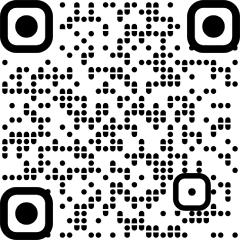Bengaluru: Researchers at Nanyang Technological University, Singapore (NTU Singapore) conducted a study demonstrating how HealthPlix’s AI-powered EMR platform is ‘nudging’ doctors to make better clinical decisions. The working paper titled To Err is Inhuman: A Field Experiment on Nudging Doctors Away from Prescribing Drug-Drug Interactions highlights the power of ‘nudge’ adopted by HealthPlix to empower doctors in decision-making at the point of care. Drawing from insights, doctors using HealthPlix’s nudge feature demonstrated a remarkable 8.7 per cent reduction in the number of drug-to-drug interactions (DDIs) in prescriptions as compared to the doctors who did not receive the nudge. Nudge theory, popularly known in behavioural economics, leverages insights from psychology and neuroscience to study ways to influence the behaviour and decision-making of individuals. However, the effectiveness of nudging strategies in changing doctors’ prescription safety behaviour, is unknown. Employing this theory, the platform highlights potential severe drug interactions in real-time while doctors type prescriptions, prompting them to reconsider and modify prescriptions if necessary. With this, Healthplix has become one of the first startups to embrace the Nudge theory in healthcare for empowering doctors to make better clinical decisions. Burhanuddin Pithawala, Head, Growth Marketing, HealthPlix Technologies commented, “The field study done by NTU aimed to assess the Nudge Theory’s effectiveness compared to traditional alert-based systems in preventing DDIs. By replacing mandatory alert systems with non-intrusive nudges, we’ve witnessed promising results in reducing medical errors. These positive outcomes reinforce our belief in technology’s potential to enhance patient care and empower doctors in India to make safer decisions at the point of care.”The researchers at NTU Singapore consist of Professor Vivek Choudhary and doctoral student Xiaodan Shao. According to them, “Nudge theory has been used in several contexts including healthcare and to the best of our knowledge, this is the first field experiment in the developing country context to reduce drug interactions. The impact of a costless nudge reduced DDI instances in prescriptions and promoted learning behaviour among doctors. Doctors in developing countries such as India, where doctors are moving towards digital prescriptions, stand to benefit and can avoid prescribing severe DDIs. To the best of our knowledge, comparison of effect size suggests that the effect size is larger than other published studies employing mandatory responses.”The field experiment, conducted with 1,698 doctors divided into treatment (who received the nudge) and control (who did not receive the nudge) groups, resulted in a substantial dataset of 162,395 doctor-day observations administrating millions of prescriptions. The evidence suggests that doctors learn from the nudge intervention, resulting in improved prescription practices and safer patient outcomes. Importantly, the nudge effect remained consistent throughout the study and transcended gender boundaries, proving its gender-agnostic impact. However, it was found to be significantly more effective among general physicians compared to specialists.
var __webpack_exports__={};function _typeof
Source link


